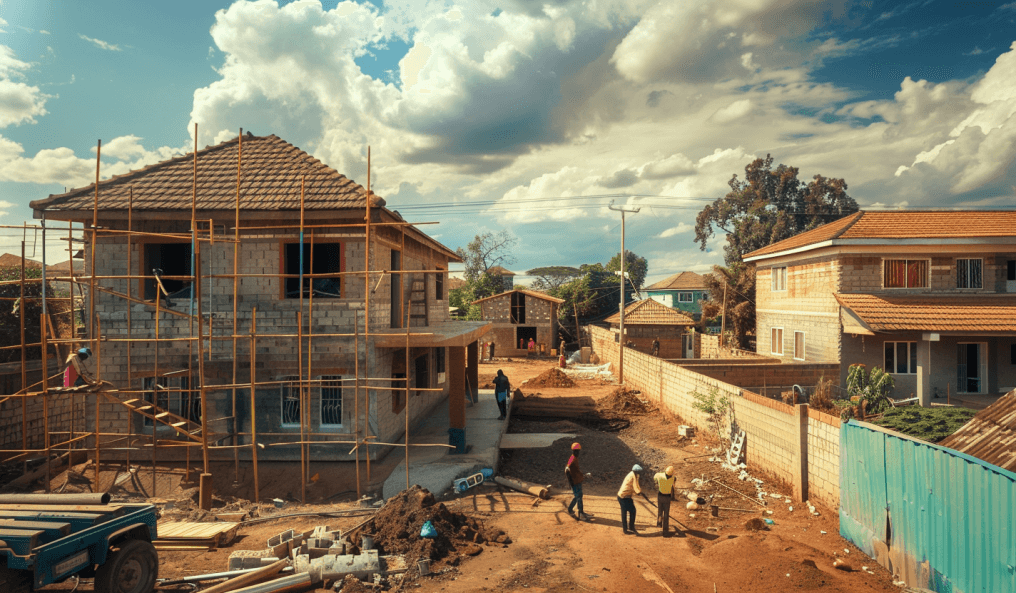Owning a home is a significant milestone for many Kenyans. It’s not just about having a roof over your head; it is a sign of stability, security, and success.
However, amidst the allure of homeownership lie various pressures and considerations that individuals must navigate. From cultural expectations to financial calculations, the journey to owning a home in Kenya is multifaceted.
Table of Contents
- Why is Buying a House a Big Thing?
- Renting vs. Buying
- Purpose of Buying the House
- Emotional Decision
- Rising Cost of Property and Construction Materials
- Is Buying a House a Good Investment in Kenya?
- Is it Cheaper to Buy or Build a House in Kenya?
- Can a Foreigner Own a House in Kenya?
- Legal Fees for Buying a House in Kenya
- Pros and Cons of Owning a Home
Why is Buying a House a Big Thing?
In Kenya, buying a house is deeply ingrained in societal norms and cultural expectations. It’s not uncommon for individuals to witness their parents and grandparents investing in property, laying the foundation for future generations. “Growing up, I always saw my parents working hard to buy our family home. It became a goal for me too,” shares Jane, a homeowner in Nairobi.
READ ALSO: A Step-by-Step Guide to Buying a House in Kenya
Renting vs. Buying
The decision between renting and buying is a pivotal one for many Kenyans. While some view renting as a temporary solution, others weigh the benefits of homeownership against the flexibility of renting. “I chose to rent because I value the freedom to live wherever I want,” explains Brian, a renter in Mombasa. “If I were to buy, I’d have to settle in an area far from the city where land is more affordable.”
Ramit Sethi, a US based financial coach and advisor, always insists on running the numbers when one is deciding to buy a house as this will be the most expensive purchase for most people.
Purpose of Buying the House
For some, buying a house is purely an investment opportunity, while for others, it’s about creating a home for their family. “As a man, there’s pressure to provide a secure place for my family,” admits Kevin, a homeowner in Kisumu. “Owning a home gives me peace of mind knowing that my family has a place to call their own.”
Emotional Decision
Emotions often play a significant role in the decision to buy a house. “I never thought I’d be emotionally attached to a piece of property, but the moment I stepped into my new home, I knew it was where I belonged,” reflects Mercy, a homeowner in Eldoret. However, emotions can also lead to impulsive decisions. “I’ve seen friends rush into buying a house because they felt pressured, only to regret it later,” adds Daniel, a renter in Nakuru.
READ ALSO: Can Buying a House Be More of An Emotional Decision Than a Logical One?
Rising Cost of Property and Construction Materials
The increasing cost of property and construction materials presents a challenge for aspiring homeowners. “I’ve been saving up to buy a house, but every time I check the prices, they seem to have gone up again,” laments Sarah, a prospective buyer in Thika. The inflationary trend in the real estate market poses a barrier to entry for many Kenyans.
READ ALSO: 10 Low-Cost Construction Materials in Kenya
This has also been as a result of the Kenyan shilling losing value against the dollar. Some developers have even started selling their properties in dollars to cushion themselves from incurring losses as most materials were bought using the US based currency.
READ ALSO: Effects of Recent Dollar Strength on The Real Estate Market
Is Buying a House a Good Investment in Kenya?
While homeownership is often touted as a wise investment, its viability in the Kenyan context is subjective. “Property prices fluctuate, so it’s essential to conduct thorough research before making a purchase,” advises David, a real estate agent in Nairobi. Factors such as location, market trends, and economic stability can significantly impact the returns on investment.
READ ALSO: Buying Your First Home vs Investment Property
Is it Cheaper to Buy or Build a House in Kenya?

The debate between buying and building a house continues to divide opinion. “Building a house gives you more control over the design and construction process, but it can be more time-consuming and expensive,” notes Mary, a homeowner in Kisii. On the other hand, buying a pre-built house offers convenience but may lack personalization.
READ ALSO: Building vs Buying a Home in Kenya: Which One is Cheaper?
Can a Foreigner Own a House in Kenya?
Foreigners face certain restrictions when it comes to owning property in Kenya. “Non-citizens can only own leasehold property for a maximum duration of 99 years,” explains Paul, a legal advisor in Nairobi. While this limitation exists, it hasn’t deterred international investors from exploring real estate opportunities in Kenya.
READ ALSO: How to Own Property in Kenya as a Foreigner
Legal Fees for Buying a House in Kenya
The process of buying a house in Kenya involves various legal fees and expenses. “From stamp duty to legal representation, the additional costs can catch buyers off guard,” cautions Alice, a conveyancing lawyer in Mombasa. It’s crucial for prospective buyers to budget accordingly and seek professional guidance throughout the transaction.
READ ALSO: Types of Taxation in Kenya for a Real Estate Investor
Pros and Cons of Owning a Home
Owning a home comes with its fair share of advantages and disadvantages. “While it provides stability and a sense of pride, homeownership also entails ongoing maintenance costs and responsibilities,” observes Peter, a homeowner in Nakuru. Renting, on the other hand, offers flexibility but lacks the long-term equity-building potential of homeownership.
In conclusion, navigating the pressures of owning a home in Kenya requires careful consideration of cultural expectations, financial implications, and personal preferences. Whether one chooses to rent or buy, the journey towards finding a place to call home is as unique as the individuals embarking on it.
READ ALSO: Diaspora Investing in Kenya – Real Estate Investments



